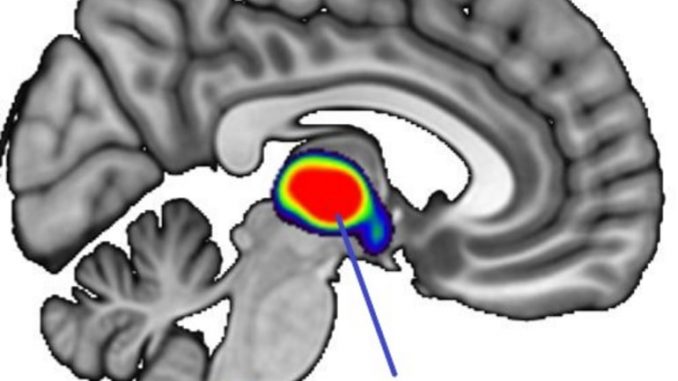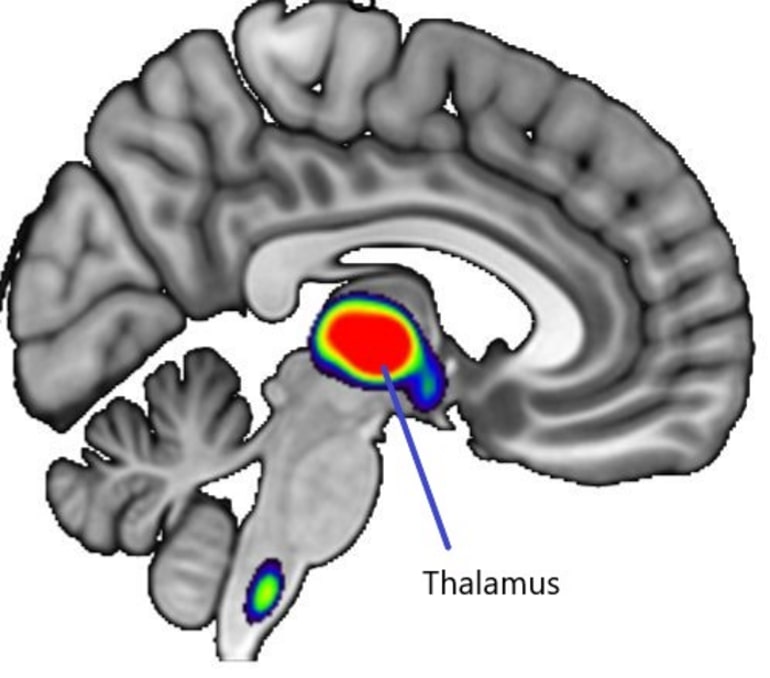Advertisement

Summary: A single cigarette dose of nicotine blocks estrogen production in the brain and causes behavioral changes. The findings could shed new light on why women may find it more difficult to quit smoking than men.
Source: European College of Neuropsychopharmacology
A dose of nicotine equivalent to that of a single cigarette blocks estrogen production in women’s brains. This may explain some behavioral differences in women smokers, including why they are more resilient than men to quitting.
This work will be presented for the first time at the ECNP Congress in Vienna.
Lead researcher, Associate Professor Erika Comasco (Uppsala University, Sweden) said:
“For the first time we can see that nicotine shuts down the estrogen production mechanism in women’s brains.
“We were surprised to see that this effect could be observed even with a single dose of nicotine, which is equivalent to just one cigarette, showing how powerful the effects of smoking are on a woman’s brain. This is a newly discovered effect and still preliminary work.
“We’re still not sure what the behavioral or cognitive outcomes are; only that nicotine affects this area of the brain, however, we find that the affected brain system is a target for addictive substances like nicotine.”
Effects have been shown in the thalamus, which is part of the limbic system in the brain. This system is involved in behavioral and emotional responses.
The researchers from Uppsala University in Sweden worked with a group of ten healthy female volunteers.
The women were given a commercial dose of nicotine intranasally and simultaneously injected with a radioactive tracer bound to a molecule that binds to the enzyme aromatase: Aromatase, also known as estrogen synthase, is the enzyme responsible for the production of estrogen. MRI and PET brain scans allowed the researchers to visualize both the amount of aromatase and its location in the brain.
The researchers found that a single dose moderately reduced the amount of aromatase in the brain.
It has been recognized for some time that women and men respond differently to nicotine, with women being more resistant to nicotine replacement therapy and showing a greater propensity to relapse than men when attempting to quit smoking.
However, the biological basis for these differences is not understood. This is the first time this inhibitory effect on aromatase production has been shown in humans. The effect on men has not been studied.
Professor Comasco continued: “This discovery leads us to believe that the effect of nicotine on estrogen production has a significant impact on the brain, but perhaps also on other functions such as the reproductive system – we don’t know that yet.” There are significant differences in the way men and women respond to smoking.

“Women appear to be more resistant to nicotine replacement therapy, relapse more frequently, have a greater susceptibility to smoking inheritance, and are at greater risk of developing primary smoking-related diseases such as lung cancer and heart attacks. We now need to understand whether this effect of nicotine on the endocrine system is involved in any of these responses.
See also

Of course this is a comparatively small group of women, we need a larger sample to confirm these results. Still, the message is that nicotine has various effects on the brain, including the production of sex hormones like estrogen.”
Professor Wim van den Brink, Professor Emeritus of Psychiatry and Addiction at the University of Amsterdam Academic Medical Center, commented:
“This is indeed an important first finding. Smoking has many adverse effects in both men and women, but this particular effect of nicotine on reducing estrogen production in women was previously unknown.
“However, it should be noted that tobacco dependence is a complex disorder with many contributing factors. It is unlikely that this specific effect of nicotine on the thalamus (and the production of estrogen) explains all of the observed differences in development, treatment, and outcomes between male and female smokers.
“There is still a long way to go from a nicotine-induced reduction in estrogen production to a reduced risk of nicotine addiction and adverse effects of treatment and relapse in female cigarette smokers, but this work merits further investigation.”
About this nicotine research news
Author: Tom Parkhill
Source: European College of Neuropsychopharmacology
Contact: Tom Parkhill – European College of Neuropsychopharmacology
Picture: The picture is attributed to Jana Immenschuh
Original research: The results were presented at the 35th Congress of the European College of Neuropsychopharmacology (ECNP).

